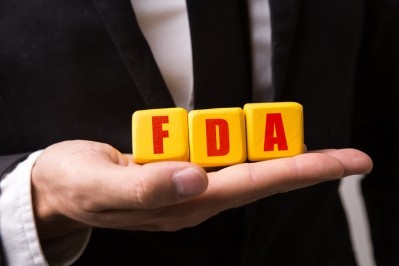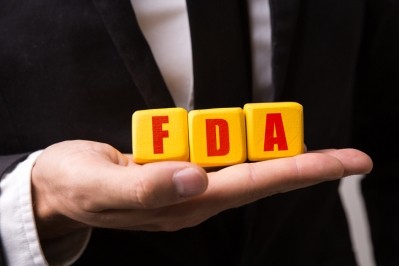FDA cites 10 firms for use of ingredients flagged as illegal

The ingredients involved are 5-alpha-hydroxy-laxogenin, higenamine, higenamine HCl, hordenine, hordenine HCl, and octopamine. FDA has flagged some of these potentially harmful because of cardiovascular risks and in other cases maintains they don't fit the definition of a dietary ingredient.
Mix of anabolic, stimulant ingredients
The first of these, 5-alpha-hydroxy-laxogenin, has been marketed as a plant-based anabolic agent. However, the US Anti Doping Agency maintains that there is no plausible record of a natural origin for this compound.
Octopamine is a constituent of bitter orange extract. However, the Agency said in one of the warning letters that it is a New Dietary Ingredient for which no notification is on file, making products that contain it adulterated.
The other four ingredients are in the stimulant category and can in theory can be found at low levels in some plant sources. However, FDA has ruled that none of these molecules meets the definition of a dietary ingredient, so any product listing them on the label is de facto adulterated.
In addition, one of the letters took a company to task for labeling a CBD product as a dietary supplement and for making noncompliant disease claims on the product.
The supplements sold by the companies receiving the warning letters all appear to be in the muscle building and weight management categories (except for the lone CBD offering).
The 11 companies are:
- Advanced Nutritional Supplements, LLC
- Exclusive Nutrition Products, LLC (Black Dragon Labs)
- Assault Labs
- IronMag Labs
- Killer Labz (Performax Labs Inc)
- Complete Nutrition LLC
- Max Muscle
- New York Nutrition Company (American Metabolix)
- Nutritional Sales and Customer Service LLC
- Steel Supplements, Inc.
Will companies push back?
Attorney Abhishek Gurnani of the firm Amin Talati Wasserman said the enforcement action was slow in coming but demonstrates the Agency’s commitment to get noncompliant ingredients off the market. But he said the warning letters might not be the final word on some of these ingredients that might be able to fly the botanical flag.
“The warning letters represent FDA’s, albeit slow, commitment to its rather new dietary supplement advisory platform. For example, the ingredients that are the subject of these recent warning letters were listed in early 2021. Of particular note is that one of the warning letters reaffirms FDA’s official position as to CBD, which is that it is precluded from being a dietary ingredient. It will be interesting to see if companies push back and argue that these ingredients are in fact lawful dietary ingredients,” Gurnani told NutraIngredients-USA.
Attorney finds timing of action suspect
Attorney Marc Ullman, of counsel with the firm Rivkin Radler, ascribed a murkier motive to the enforcement action. He said gathering the 11 letters together means FDA has been mulling the action for a while, and he found the timing potentially suspect. It comes only days after the introduction in late April of the Dietary Supplement Listing Act of 2022, which has Sen. Dick Durbin, D-IL, as one of its sponsors. FDA has been on record stating that a pre market mandatory product listing of the sort proposed by the bill would help it police the market.
“How long have they been sitting with this information? Is it just a coincidence that they waited until after Durbin dropped his bill?” Ullman asked.
“And if these are ingredients that they’ve said are dangerous, why is the ‘enforcement response’ just a letter? I submit that this amounts to ‘enforcement theater,’” he concluded.
Only one of the 11 companies responded to a request for comment in time for publication. That response could lend some credence to Ullman’s assertion that the enforcement action has been brewing for quite some time. Ullman maintained that’s something that could beg the question of just how ‘dangerous’ the Agency considers these ingredients to be, given the fact that end users have been consuming them in the meantime.
“The [warning letter] is referencing a version of a product which has already been discontinued and out of commerce for some time now. It appears there was an old supplement facts panel image that the agency came across. We hope to resolve this misunderstanding,” said Assault Labs in a statement.















